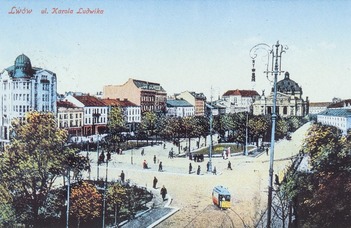Lemberg öröksége

2019. december 13. 10:00
Főépület 321-es terem (1088 Budapest, Múzeum körút 6-8.)
2019. december 13. 10:00 -
Főépület 321-es terem (1088 Budapest, Múzeum körút 6-8.)
Markian Prokopovych történész a Durham-i Egyetem oktatója; korábban a Birminghami Egyetem, a Bécsi Egyetem és a CEU munkatársa volt. Szakterülete a várostörténet, valamint Közép- és Kelet-Európa 19-20. századi kultúrtörténete. Előadásában azt mutatja be, hogy hogyan alakult át Galícia fővárosa, Lemberg / Lwów / Lviv a 18. sz. végétől az I. világháborúig tartó korszakban, s hogyan jelentek meg a többnyelvű és többkultúrájú, dinamikusan fejlődő város terében a különféle, egymással versengő nemzeti mozgalmak.
The Making of Habsburg Lemberg: Empire and Nation in the Nineteenth-Century City and Its Architecture
When Austria annexed Galicia in 1772, the new Habsburg province's capital city Lemberg (Lwów/Lviv) was a decaying Baroque town. By the outbreak of the First World War, it had become a thriving modern city with even grander - even if somewhat exaggerated - aspirations. The Habsburgs fundamentally transformed the city though particular uses of architecture. However, Lemberg would never become truly cosmopolitan; rather, it remained the site of conflicting symbolic representations and various complex uses of buildings and sites by its different ethnic groups, or nations, as they preferred to call themselves. This lecture will analyse how Lemberg’s buildings, streets, parks and monuments became part and parcel of a complex set of culturally driven politics.
Markian Prokopovych is a lecturer of Durham University, UK, Department of History. His teaching and research focuses on cultural history of East Central Europe in the nineteenth and twentieth century, and more broadly on urban history and modern European cultural history.

